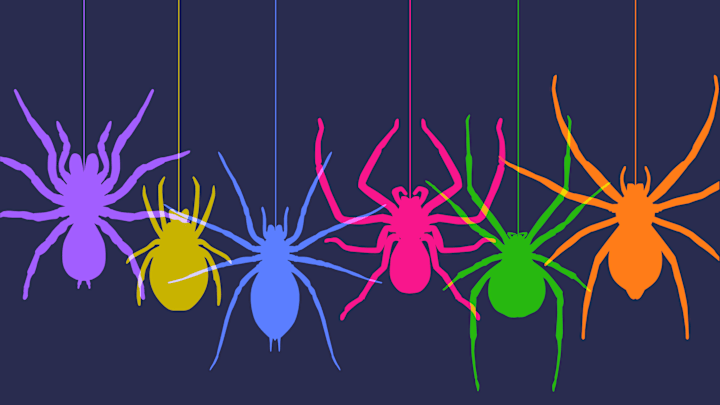Self-professed arachnophobes aren’t the only people who’d prefer their lives be spider-free. The spindly eight-leggers generally elicit shivers across the board—even from some entomologists, whose appreciation of insects apparently doesn’t always extend to arachnids.
But as Smithsonian reports, the media could be exacerbating our collective aversion to spiders by sensationalizing and misreporting details about human interactions with the creatures. In a recent study, a group of researchers trawled 5348 news articles published between 2010 to 2020 that involved 6204 total “human-spider encounters.” A tidy 43 percent of the stories contained sensationalist language, including terms like nightmare, panic, murderer, terror, devil, and agony.
An even higher percentage—47, to be exact—contained outright errors. Sometimes, an article would feature an image of a spider that didn’t match the species involved in the actual incident. Other articles flubbed details about spider anatomy (they don’t have stingers), taxonomy (they’re not insects), and/or venom effects.
The falsities aren’t specific to American media outlets: The study included news published in 40 different languages across 81 countries. And thanks to the internet, sensational local stories often don’t stay local. As the researchers explained in a paper published in the journal Current Biology, “improving the quality of the information produced in these local nodes could have a positive effect reverberating across the network—a typical example of a ‘think globally, act locally’ management strategy.”
Urging people to combat the spread of spider-related misinformation may seem like a PR campaign cooked up by spiders who are sick of all the bad press. But a misguided dislike of arachnids can lead to dangerous and costly outcomes. On at least two separate occasions—in 2012 and 2018, respectively—California men have set their houses on fire while using blowtorches to rid their properties of spiderwebs.
“This probably was a bad idea,” a Fresno fire chief who dealt with the 2018 blaze told reporters.
In September 2021, two schools in Northampton, England, briefly shut down due to a suspected infestation of false widow spiders. Though the bite of a false widow—so named because it’s often mistaken for a black widow—can hurt like a wasp sting, more extreme reactions are uncommon.
“There is often hysteria surrounding these spiders, and they have unjustly earned a reputation for being a dangerous pest. But these spiders only bite when they feel threatened,” London’s Natural History Museum explains.
So how can you avoid falling for spider-specific fake news? For one thing, exercise a healthy skepticism when reading articles rife with fear-mongering terms. You should also try to seek out sources that cite bona fide spider experts, from arachnologists to pest controllers. According to the study, “sensationalism decreased when a spider expert was consulted in the news article.”
[h/t Smithsonian]
